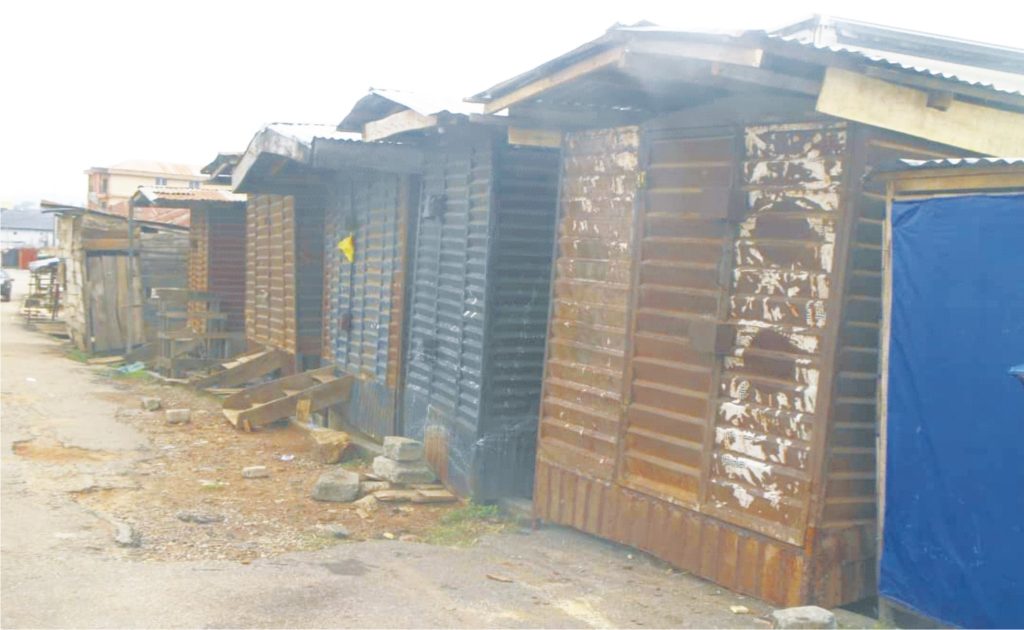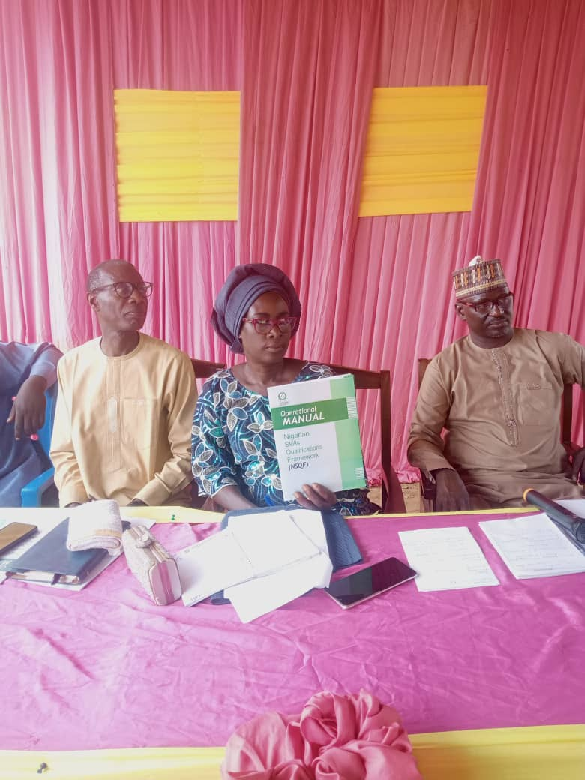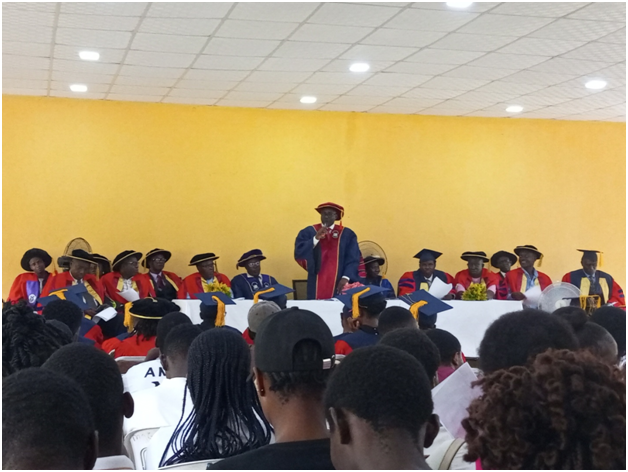Addressing food insecurity in the South West through plantain
By Favour Idiagbonya & others
|
As the South-Western Nigeria battles food insecurity, making the region vulnerable to the whips of the Northern region, where most food crops are supplied from, there have been calls for solutions to enhance food productivity and reliance of the Yoruba dominated region.
One of the staple crops that can be exploited to address shortage of food supply in the South Western Nigeria, which farmers and agric professionals have suggested is plantain.
Plantain ranks as the 6th on the list of staple crops in the world according to Food and Agricultural Organisation (FAO) and it is abundant in the Western part of Nigeria. People enjoy its consumption on regular basis
In regards to tackling food insecurity, plantain as a food crop can serve as a substitute for cereals, and improved plantain production could compensate the deficit in cereal production at national level and reduce food insecurity.
However, despite its potentials, there are many constraints bedeviling the production of the crop. The constraints are usually encountered across the production chain. Some of them include lack of agricultural loan and capital for farmers, lack of labour, lack of adequate and cheap means of transportation, inadequate fertilisers.
A plantain and banana integrated farmer in Ilara Mokin, Mr Olaseinde Akinola revealed that the cost of getting improved varieties from research institutes like Nigeria institute for Horticulture, Ibadan (NIHORT) is very expensive, especially when the transportation cost is factored in.
He also revealed that he had found it difficult to access loan to expand its business, owing to the risk base structure and insurance needed before he could get an expansion capital.
Despite having a large expanse of land to grow plantain, Mr Akinola disclosed that inaccessibility of loan had affected his production as he then grew his plantain at his backyard.
Another plantain farmer, Mrs. Rebecca Odunayo also confirmed that it has been Herculean for plantain farmers to transport their produce to the market. She revealed that she planted her crops in such a way that every month, she harvested from three to four trees, so that, there would significant increase in her business monthly.
She laid emphasis on the fact that plantain is a lucrative business especially when processed into chips and flour, saying the two products are consumed on regular basis by the people.
She further revealed that the little income she made from the business was being invested into her plantain flour business for regular expansion.
However, despite the high productivity and income potentials of the crop, she lamented that she had been unable to meet her customers’ demands as she could not afford the labour required to expand her production.
Another factor identified by the farmer was lack of means of transportation to convey her produce to the market or customers. According to her, her husband had been using motorcycle as a means to transport plantain during harvest to the market or to those who needed them for other food products such as plantain flour, chips and so on.
Another factor identified by the farmers was inadequate storage facilities. It was revealed that there were records of massive post-harvest losses of produce. This, they said resulted from inadequate technological application, quality control and improper post handling of the produce. The packaging sector lacks adequate pre-packing infrastructure, cold storage and theft.
The farmers opined that if these constraints are addressed, plantain production will be enhanced and the staple crop can be made available all through the year.
A visit to Sunward Global Ventures, Ilara Mokin, a company that deals in processing, packaging and marketing of plantains, was an eye opener into how the production chain constraints can be addressed and plantain production be improved.
The Production Manager of the company, Mr Awopetu Kehinde also corroborated the issues identified by the farmers. He identified that a major plantain production value chain constraint is non-availability of labor for land preparation, which seems to be a key factor for bountiful yield. He also identified lack of capital for farmers to expand their productivity and poor access to inputs such as fertilizers and pesticides.
Therefore, farmers had very little access to planting materials, which made rely only on suckers from their plots and neighboring fields, and this increases the risk of pests and diseases.
It was revealed that additional value can be obtained from plantain through slicing and drying the product.
In the floor processing section of the company, it was revealed that the colour of the flour obtained used to be brownish because of the action of browning enzymes but by blanching the plantain pulp at 80 degree Celsius for about five minutes and cutting them into round pieces, followed by draining and drying in an oven at 65 degree Celsius for 48 hours or in the sun for some days (which could be weather dependent) would result into production of a more or less whitish flour of great quality.
Mr Awopetu also revealed that in the aspect of marketing, for the global value of international and national trade, plantain is a principal commodity that provides direct and indirect employment opportunities for about 50million people worldwide.
He however said that the limitations include access to reliable transport network and viable market. Poor handling causes bruising and delay in transportation due to poor road network compromises the quality and price of the product.
“There is limited information spread from markets to farms which enables someone taking advantages of poor rural farmers. Poor storage facilities and the perishable nature of plantain can pose a threat to the yield and market gain”, he said.
As solutions, he suggested that first; improvement of information flow among the value chain actors and reduction in the likelihood of intermediaries taking advantage of poor rural farmers who lack proper information of the current market. Similarly, radio broadcast stations should involve local specificity as a clear intervention spot for national and local government.
Also, NGOs specializing in value chain development should help promote linkage process and encourage dynamism since they understand customer’s preference. There should be availability of large amount of inputs (fertilizers and pesticides) and hired labor.
Research and development should be sponsored to identify effective ways to improve information flow within the value chains and farmers should be organized into co-operative systems to enhance their advocacy locally and nationally.
Improvement in the production and marketing of plantains could result in increased income for farmers in the South West. Improved devices for plantain industrialization can strengthen plantain value chain using mechanization for planting, harvesting and processing for plantain and its processed products (flour, chips) that seeks to increase the yield, reduce post-harvest losses, enhance income and thus, boosting food security in south west.
Government should improve access to credit facilities and agricultural loans and also sensitize farmers on the steps to take in order to access the central bank agricultural loan scheme, provide value added technology, technical trainings by extension agents or subject matter specialists in terms of plantain production, collective marketing, access to inputs and women empowerment programs.
Improving the general market infrastructure, which involves road network and other basic amenities are the reliable solutions proposed to better the production value and improve the production function of plantain to increase its exportation value, not leaving out access to effective packaging and branding to increase the shelf life of processed plantain products.
While commenting on the potentials of plantain to provide food security to Western Nigeria, an Agricultural Extension professional and lecturer at the Federal University of Technology, Akure, FUTA, Dr. Jonathan Akinwale, stressed that value chain activities required greater support for farmers, so that, Nigeria could grow its Gross Domestic Product (GDP) and maximize more benefits from plantain production for the people in the Western region, Nigeria.










